System Design - MMOG - Game
System design: Design Multiplayer game
Game Loop
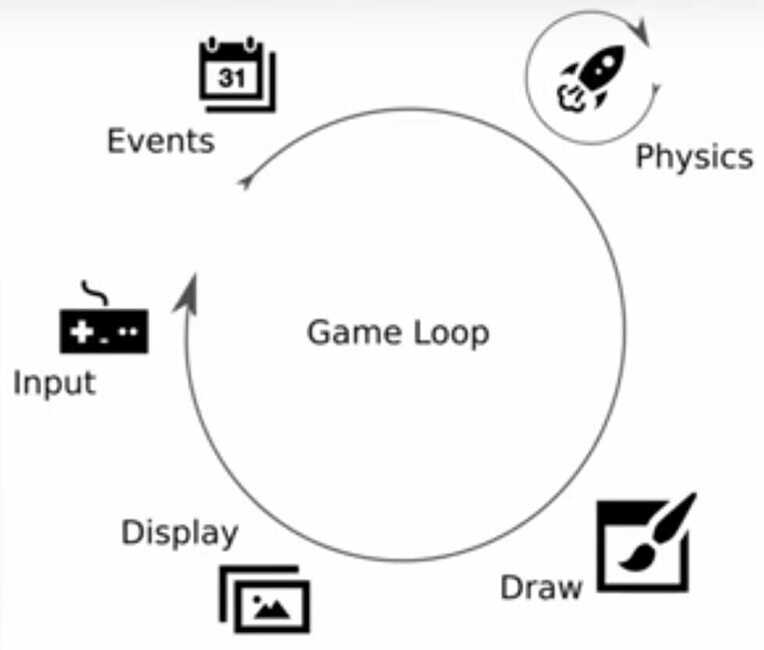
while (true) {
check_input()
update_game_state()
render_screen()
}
Physics Engines
- Unity
- Unreal Engine
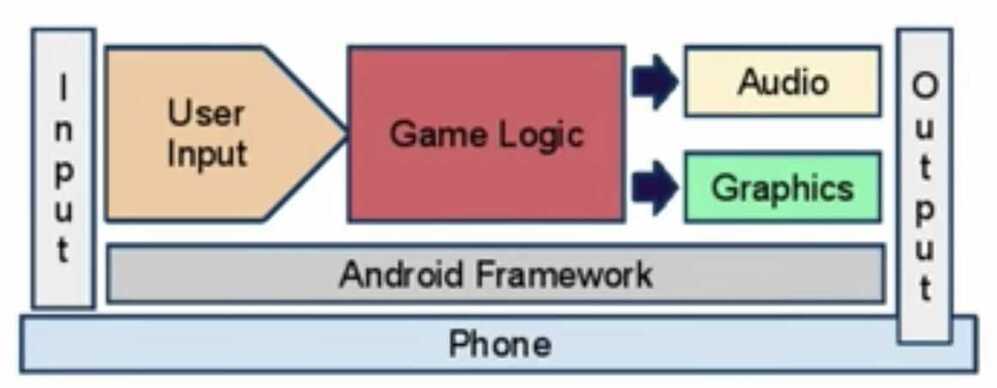
- Strategic games
- Slow turn games
- First person games
Authoritative Server
- Holds all the state information and validates each state information with it's own state
- No one can hack the client and run mod commands
- Therefore can't have peer to peer connection between players
Networking
- Deterministic Lock Step
- Sends only input only and not the new state of game character
- Encode each bit for each input thereby saving more bandwidth
- Using this other side can simulate their own environment
- Sampling size - 60 / sec
-
TCP (Head of line blocking), therefore can't use TCP
-
Playout Buffer (keep 5 sec in buffer like in youtube, netflix, that keeps preloaded some data beforehand, so intermittent network can be smoothened)
-
Can have a buffer space (park space) of 50 ms so the overall experience is smooth
-
Therefore instead of TCP use UDP,
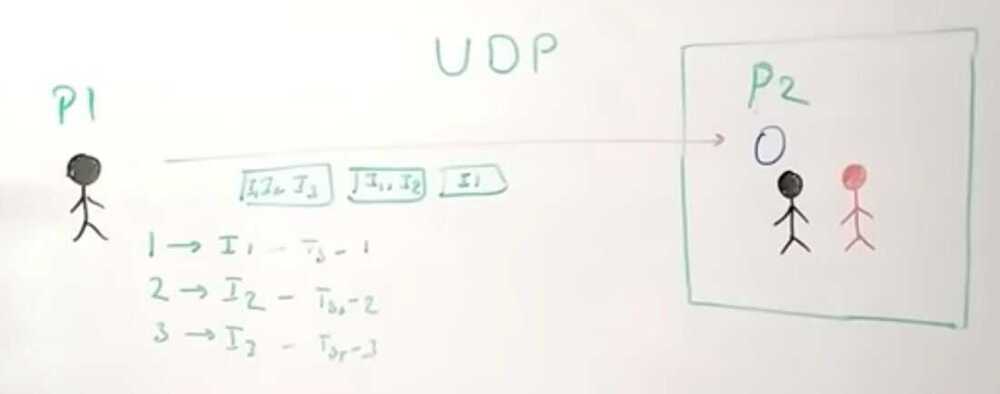
- Send previous inputs in all packets
- Add timestamps for replay- State Synchronization
- Sync state of the environments object
- Object State
- Position
- Orientation
- Linear Velocity
- Angular Velocity
- Object State
- Sync state of the environments object
- Jitters and lagging
- Prediction
- Linear Interpolation
- Polar Interpolation
- Hermite Interpolation
- Prediction
Handling states, corner cases, rules for objects
- Via if-else statement
- Not maintainable
- Not scalable
- No design pattern
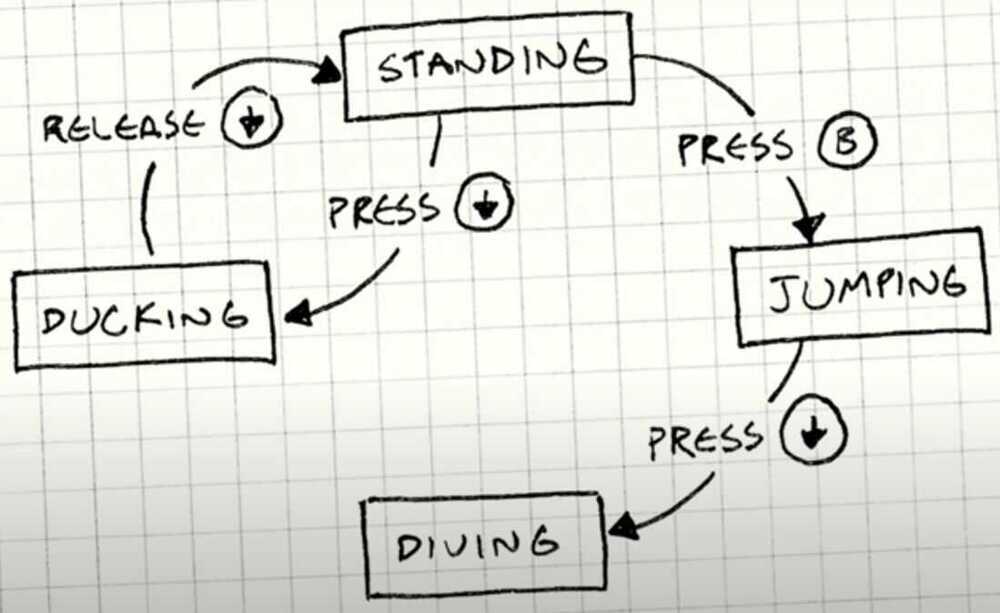
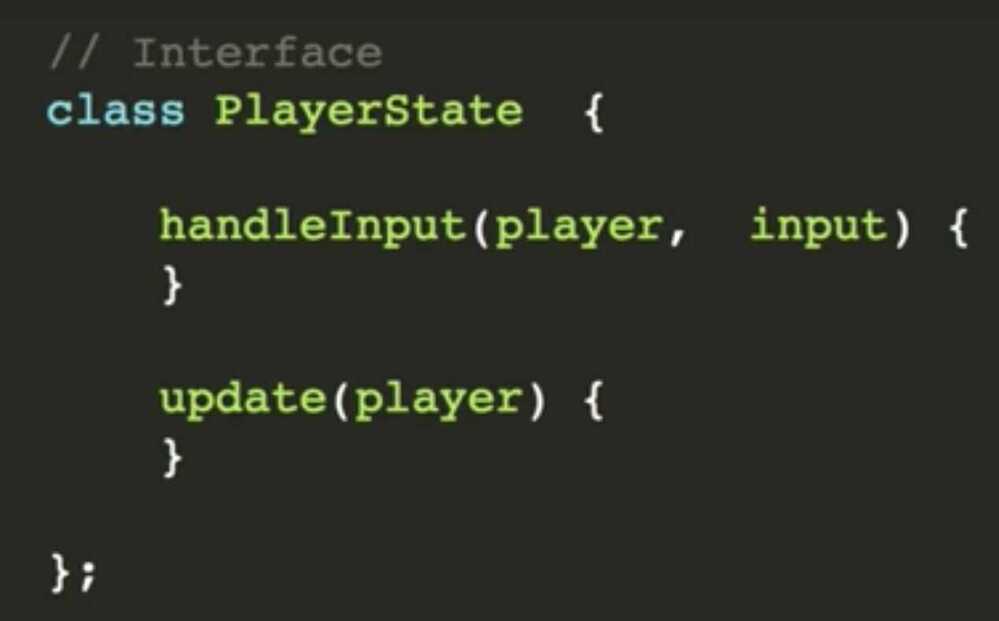
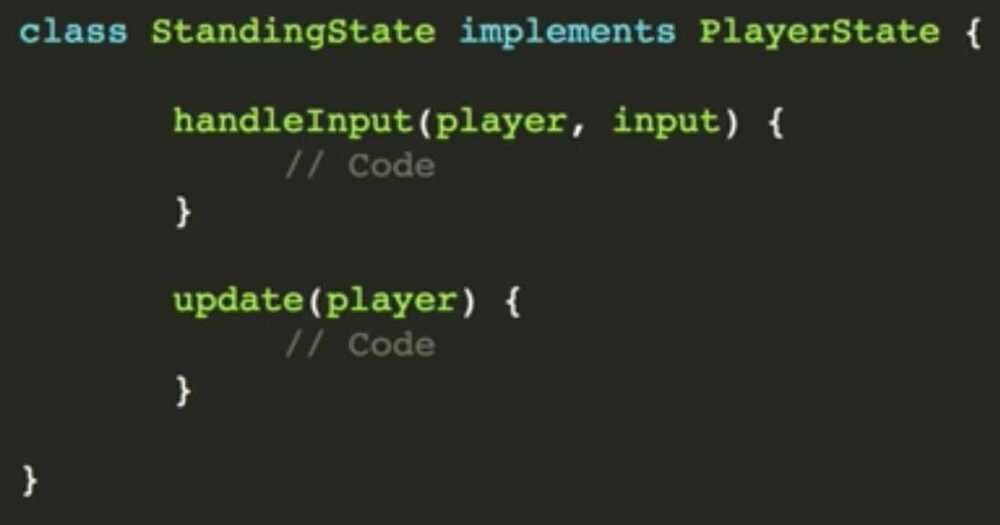
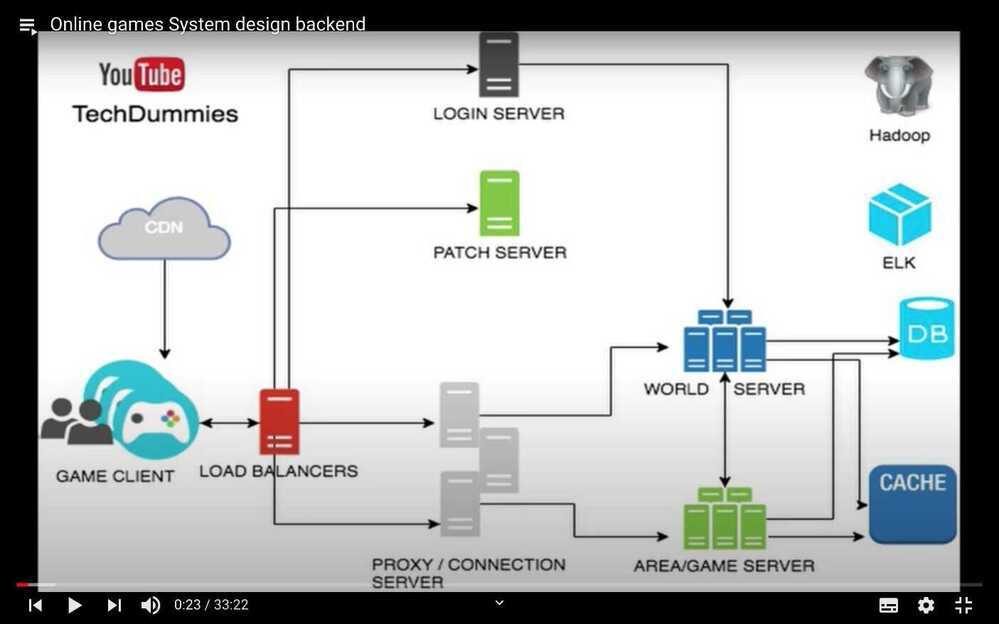
- World Server
- Game /Area Server
- Data Structure - Map Template
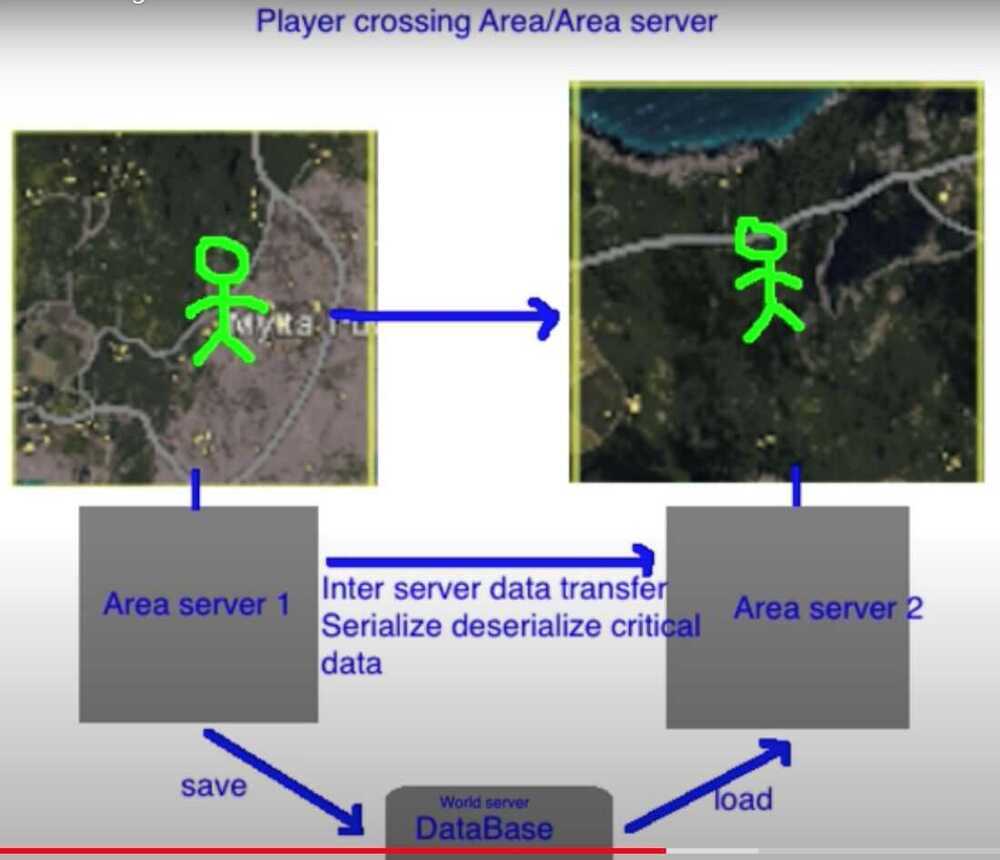
Patch Servers
- Everyone should be in same version in MMOG
- Real time updates
Game State Backup
- Important bits
- Only if changed
- Individual
- Async
CDN
Game Sprites
Database
- SQL
- Sharded SQL
- NoSQL